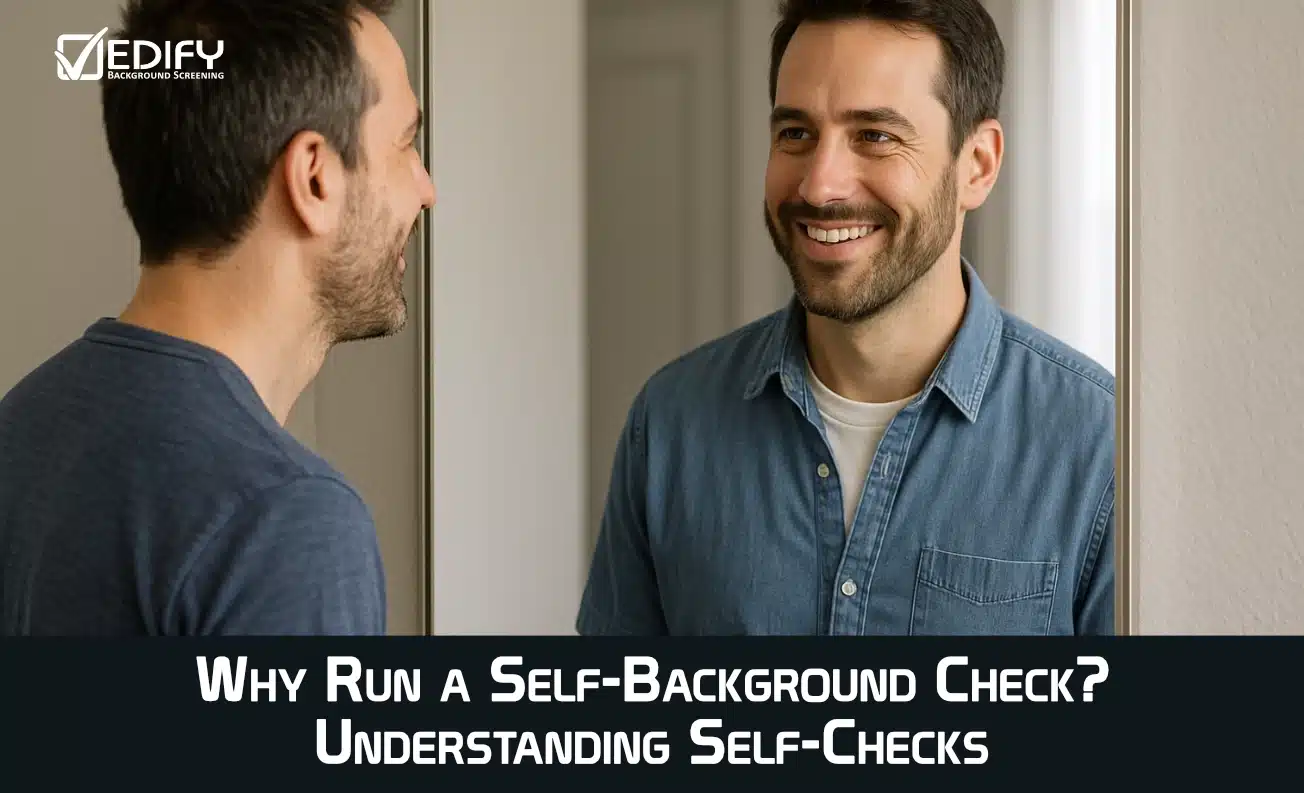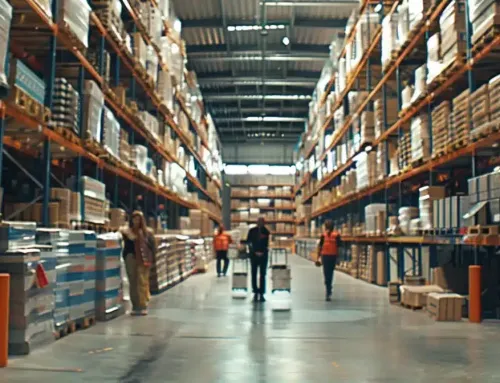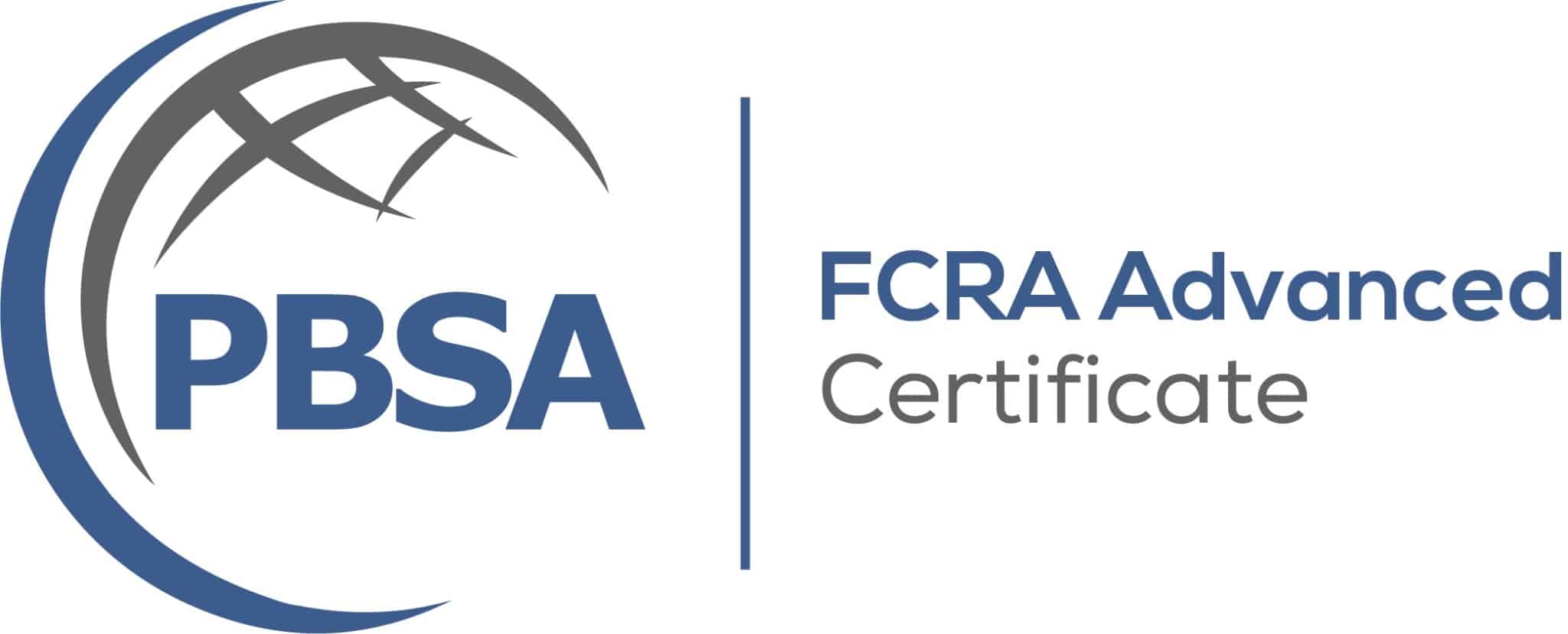Why Run a Self-Background Check? 2025 Update
What if you could see what an employer, landlord, or licensing board sees before they make a decision about you? That’s exactly what a self-background check allows. Mistakes in public records, outdated information, or even identity mix-ups are more common than most people realize. According to an FTC study, 1 in 5 people have an error in their consumer report. Running your own background check gives you the chance to identify issues, fix errors, and be fully prepared before someone else reviews your history.
At Edify Background Screening, we offer Self-Checks—comprehensive background checks you order for yourself, giving you visibility into what others may see. Whether you’re preparing for a new job, volunteering opportunity, lease application, or contractor project, a self-background check can provide confidence, transparency, and peace of mind.
What Is a Self-Background Check?
A self-background check is a screening report you order on yourself to see what information could appear when an employer, landlord, or organization runs a check. While employers typically purchase reports through a Consumer Reporting Agency (CRA), you can order a personal report for your own review. This lets you confirm accuracy, understand what data is reported, and prepare to address any concerns.
Self-checks can be useful for:
-
Job applications and career changes
-
Housing or rental applications
-
Professional licensing or certifications
-
Volunteer positions or contract work
Why Run a Self-Check in 2025?
Knowing what’s in your background report before an employer, property manager, or volunteer coordinator sees it can make all the difference. It allows you to spot potential errors, prepare explanations, or confirm your record is clear. This proactive step demonstrates responsibility and often speeds up onboarding, housing approvals, or licensing processes.
Here are the most common reasons people choose to run a self-check:
- Catch errors early. A typo in a date of birth, incorrect criminal record, or outdated address can derail opportunities.
- Prepare explanations. If you have a record, knowing exactly how it appears helps you explain it honestly and proactively.
- Stay compliant. Many states have adopted Clean Slate or automatic record-sealing laws, meaning older offenses may no longer appear. A self-check shows you how current law affects your report.
- Save time. Identifying and disputing errors before you apply for a job or apartment can speed up approval.
- Show initiative. Running your own check demonstrates responsibility and transparency.
What’s Included in a Self-Background Check?
Most self-background check packages include the same core elements employers use, such as:
-
Social Security Number Trace – identifies past addresses and aliases
-
Criminal Database Search – broad search of nationwide repositories (with limits)
- Sex Offender Registry – national search across state registries
-
County and State Criminal Searches – direct checks at jurisdictions tied to your address history depending on the package your order
-
Driving Records (MVR) – where applicable, to identify moving violations or suspensions based on package ordered
Additional options may include education verification, employment verification, or industry-specific checks like healthcare sanctions.
Limitations of Self-Background Checks
No background check is perfect. It’s important to understand these limits:
-
No single “master database.” Criminal records are scattered across thousands of jurisdictions.
-
Sealed or expunged cases. Recent Clean Slate laws may remove older records.
-
Reporting limits. States have different rules on how far back non-convictions or minor offenses can be reported.
-
Not identical to employer packages. Employers may run industry-specific checks (such as credit reports or licensing verification) that won’t appear in a basic self-check.
By knowing these gaps, you’ll have realistic expectations about what a self-check shows.
How Long Do Self-Checks Take?
Turnaround times vary depending on the type of package and the jurisdictions involved.
-
Basic packages (such as volunteer or retail positions) often return results within 24–48 hours.
-
Comprehensive packages (such as contractors, healthcare, or education) may take 3–5 business days, especially when on-site county courthouse searches or verifications are required.
-
Drug screenings typically return within 8–48 hours depending on initial and confirmation testing.
While many courts today provide electronic access to records, not all do. In some jurisdictions, records are still stored in paper files and require a researcher to visit the courthouse in person. Certain counties are clerk-assisted only, meaning only the clerk of court can perform the research, which can extend turnaround times and add costs. These variations explain why some reports are nearly instant while others require several days to complete.
How to Use Your Self-Check Report
Once you receive your report:
-
Review carefully. Look for errors in addresses, dates, or case outcomes.
-
Dispute mistakes. Under the FCRA, you have the right to dispute inaccuracies directly with the CRA.
-
Prepare explanations. If there are legitimate issues, draft a short, professional statement you can share with employers.
-
Refresh periodically. Laws change and records update. Running a self-check every 12–18 months ensures you stay ahead.
Legal and Compliance Updates
Background checks are governed by strict legal and reporting standards. It’s important to understand the limitations and requirements that apply when ordering a self-check. While these screenings provide valuable insight into your record, there are situations where additional searches or verification may be required, and some information is intentionally excluded. Below are the key points you should know:
-
Database Limitations: National and multi-jurisdictional searches do not cover all U.S. jurisdictions. For a complete 7-year criminal history, county-level searches are recommended.
-
Clean Slate legislation in states like Michigan, Pennsylvania, and California that automatically seal certain misdemeanor and felony records after a set time.
-
Ban-the-Box ordinances in cities and states that restrict when employers can ask about criminal history.
-
Limits on reporting in states like New York and Illinois, which shorten how far back some records can be reported.
-
Finality of Reports: Once your report is issued, it is considered final. All sales are non-refundable, even if you provided incorrect data or did not submit all required information.
-
Traffic Records: Minor traffic violations are not included in criminal history reports. If you need driving records, you must request an optional Motor Vehicle Report (MVR).
Self-Check Package Pricing From Basic to Comprehensive
Edify’s self-check packages are affordable and customizable. Prices start at just $23.95 for basic retail or volunteer packages and can exceed $100 for comprehensive screenings that include multiple states, education, employment, and motor vehicle checks.
Here’s a quick overview of pre-configured packages we offer:
-
Retail / Customer Service Self-Check – $23.95
-
Child Care / Nanny Self-Check – $24.95
-
Volunteer Self-Check (basic) – $21.95
-
Volunteer Self-Check (advanced) – $49.95
-
Student Admissions Self-Check – $36.95
-
Independent Contractor Self-Check – $49.95
-
Independent Delivery Contractor Self-Check (includes MVR) – $74.95
-
Home Health Care / CNA Self-Check – $64.95
-
7-Year Criminal History Package – starting at $54.95 (varies with county fees)
-
Drug Screening Self-Check (5-panel) – $54.95
Take Control of Your Background Check
Running a self-background check is one of the smartest steps you can take to protect your career, housing, or licensing opportunities. It gives you the power to correct errors, prepare explanations, and move forward with confidence. With new laws reshaping what appears on reports, 2025 is the perfect time to take control of your personal data.
Ready to see your report? Start your self-background check today.
FAQ
Will my self-check match exactly what an employer sees?
Not always. Your self-check covers the most common elements, but an employer’s package may include additional searches like employment verification, credit checks, or industry-specific databases.
What if I find an error on my report?
Contact the CRA that issued the background check and request a Reinvestigation. All legitimate CRA’s has a formal process for this and will review the specific items you indicate are incorrect and correct any verified errors. This process usually takes 30 days or less.
Do sealed or expunged records still appear?
In most cases, no. If a record has been sealed or expunged, it should not appear on your report. However, errors sometimes occur, which is another reason to check your record and request a reinvestigation if errors are found.
How long do background checks take?
Database checks may return instantly, while county courthouse searches can take three to five business days. Ordering early is best.
Can I share my self-check report with employers?
Self-checks are primarily for your own review. While you can share them, most employers are required to run their own checks through accredited CRAs for compliance reasons. Volunteer organizations may accept your self-check report so long as it was performed within the past 30-60 days.
Additional Resources:
Federal Trade Commission — Background Checks
CFPB: “A Summary of Your Rights Under the Fair Credit Reporting Act”
The resources provided here are for educational purposes only and do not constitute legal advice. We advise you to consult your own counsel if you have legal questions related to your specific practices and compliance with applicable laws.













